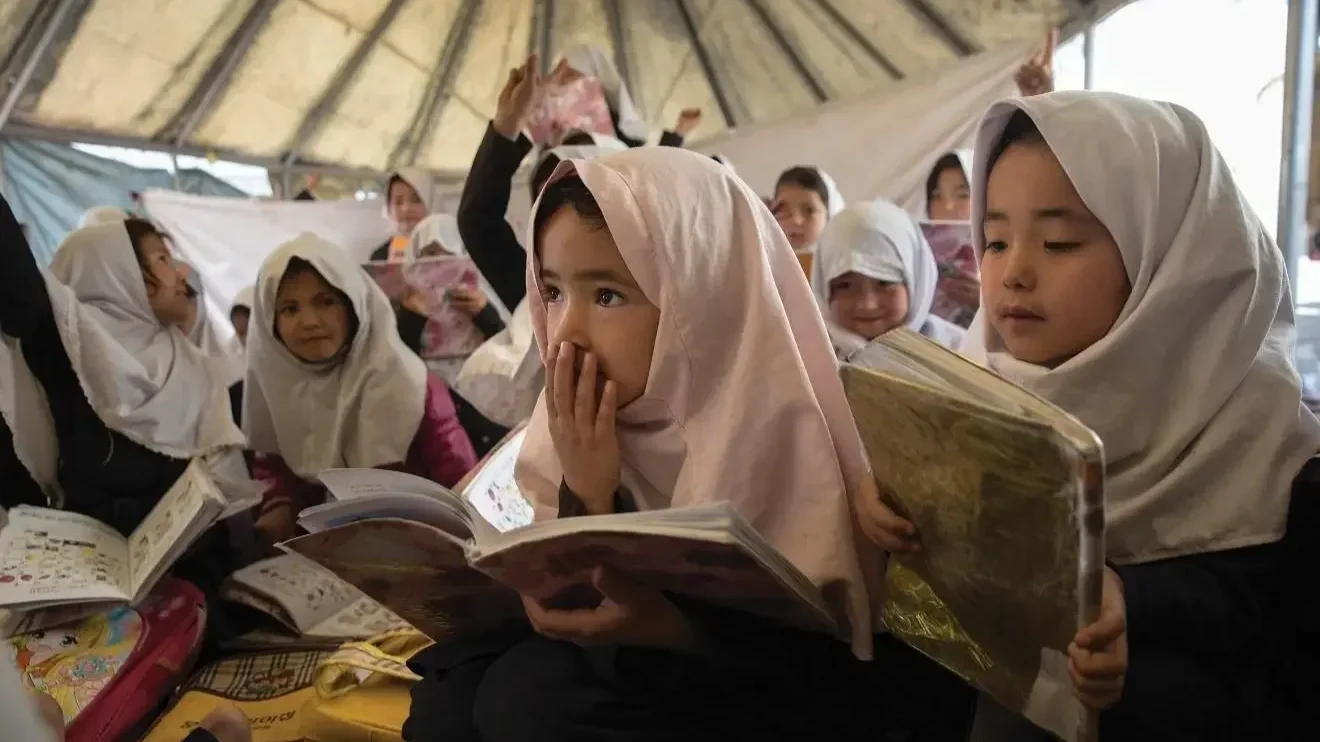IPNEd’s call for action to protect rights, including to education, in Afghanistan
Four years after the Taliban returned to power in Afghanistan, the country remains the only place in the world where women and adolescent girls are banned from education.
Members of parliament from around the world once again call for the ban to be lifted and for wider violations of women and girls in Afghanistan to cease.
The International Parliamentary Network for Education and our member parliamentarians call for:
an end to impunity for rights violations;
the codification of gender apartheid as an international crime;
donor support for more and better primary education for Afghan girls and boys; and
alternative post-primary learning and skills development.
Today marks the fourth anniversary of the Taliban’s return to power in Afghanistan.
One of the first acts of the Taliban was to impose a ban on education for adolescent girls and on women attending higher education.
Four years on, those bans are still in place, and over 1.5 million young girls have been deliberately denied access to secondary education since 2021.
Together with the girls who were already out of school before the bans were introduced, today almost 3 million girls in the country have been deliberately deprived of their right to education.
Meanwhile, the ban on women attending higher education has resulted in university enrolments being reduced by half.
We once again call on the defato authorities to lift the ban on the education of adolescent girls and women and allow them, along with their male counterparts, unhindered access to educational opportunities.
Support for international measures to end impunity for rights violations
We recognise that the violation of women’s and girls’ right to education is part of a wider, systemic attack on the rights of women and girls, causing immense harm, spanning generations and impacting all elements of Afghan society.
More than 100 decrees have been issued by Afghanistan’s de facto authorities that severely restrict the daily lives of women and girls, violating their rights not just to education, but also to health, employment, freedom of movement and expression..
We support the assessment of Afghan women, human rights organisations, the International Criminal Court, and the UN Special Rapporteur on the situation of human rights in Afghanistan that these violations are so severe and extensive that they may amount to crimes against humanity.
We urge the international community to support all actions that seek to ensure accountability for human rights violations conducted by the de facto authorities.
Codify the crime of gender apartheid
We support efforts by Afghan women to have this institutionalized regime of systematic oppression acknowledged as gender apartheid.
We consequently urge our governments to support the codification of gender apartheid in the crimes against humanity treaty - the first major UN treaty on core international crimes since the Rome Statute - which will be negotiated from 2026 to 2029.
Practical action to expand and improve basic education
Girls under the age of 12 are still permitted to attend primary school, and community demand for girls' education remains high.
However, the provision of basic education is limited. Approximately 3.7 million primary-aged children lack access to school.
Further, since the beginning of 2025, over 1.9 million Afghans have returned, often forcibly, from Iran and Pakistan to Afghanistan. Almost half of these are children who arrive in a country facing an acute humanitarian and human rights crisis and have no access to basic services, including education.
The quality of education for those with access is often very poor. Only 14 percent of children in Grades 2 and 3 in Afghanistan have basic reading skills.
International assistance plays a vital role in expanding community-based education in areas where public schools are unavailable and in enhancing the learning outcomes of children who are already enrolled in school.
We urge donor governments and development banks to refresh their support for Afghanistan’s education sector, including by renewing their support for Education Cannot Wait: the global fund for education in emergencies’ multi-year programme.
Support post-primary learning and skills development
Despite enormous challenges, civil society organisations have gone to great lengths to keep hope alive and provide learning opportunities for girls in their homes.
Educational content delivered via TV, radio, and online offers girls a valuable lifeline that must be sustained.
Efforts to ensure that this learning can be assessed and certified should be strengthened, and opportunities for girls to pursue tertiary education internationally should be expanded.
While these alternative modes of learning are welcome and play a role in keeping the hope of Afghan girls alive, we recognise that nothing can replace face-to-face education in a classroom with your peers.
We consequently call on the international community to take every possible action to achieve the complete restoration of the right to education for girls and women in Afghanistan.
We must not abandon Afghanistan
In a world facing the simultaneous occurrence of multiple interconnected crises, which has created a situation more complex and challenging than the sum of its parts, there are many situations that demand our attention.
This is not a case for inaction in the face of suffering and deprivation in Afghanistan or elsewhere.
In fact, we oppose the growing trend of many governments to deny their international obligations, abandon multilateral cooperation, undermine the rules-based order, or cut development and humanitarian assistance.
We implore our governments to do everything in their power to help the people of Afghanistan who have already endured decades of warfare, poverty, and hardship, as well as extreme discrimination and threats.
We must not turn our backs on them now.


